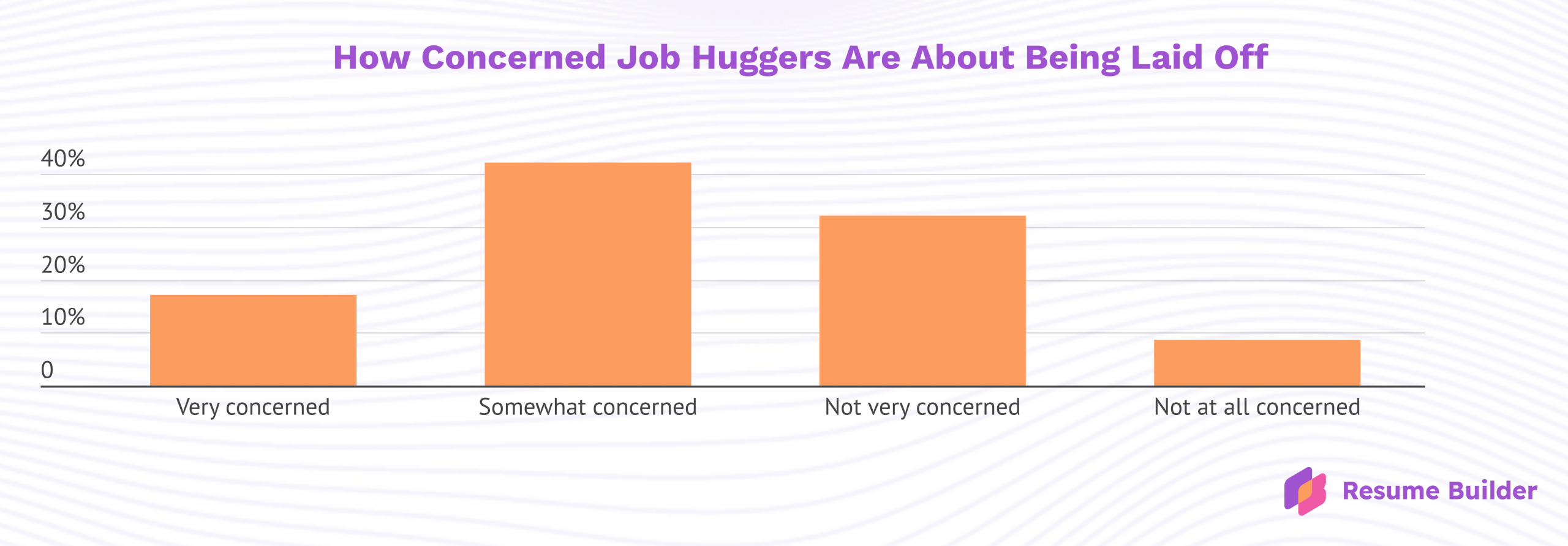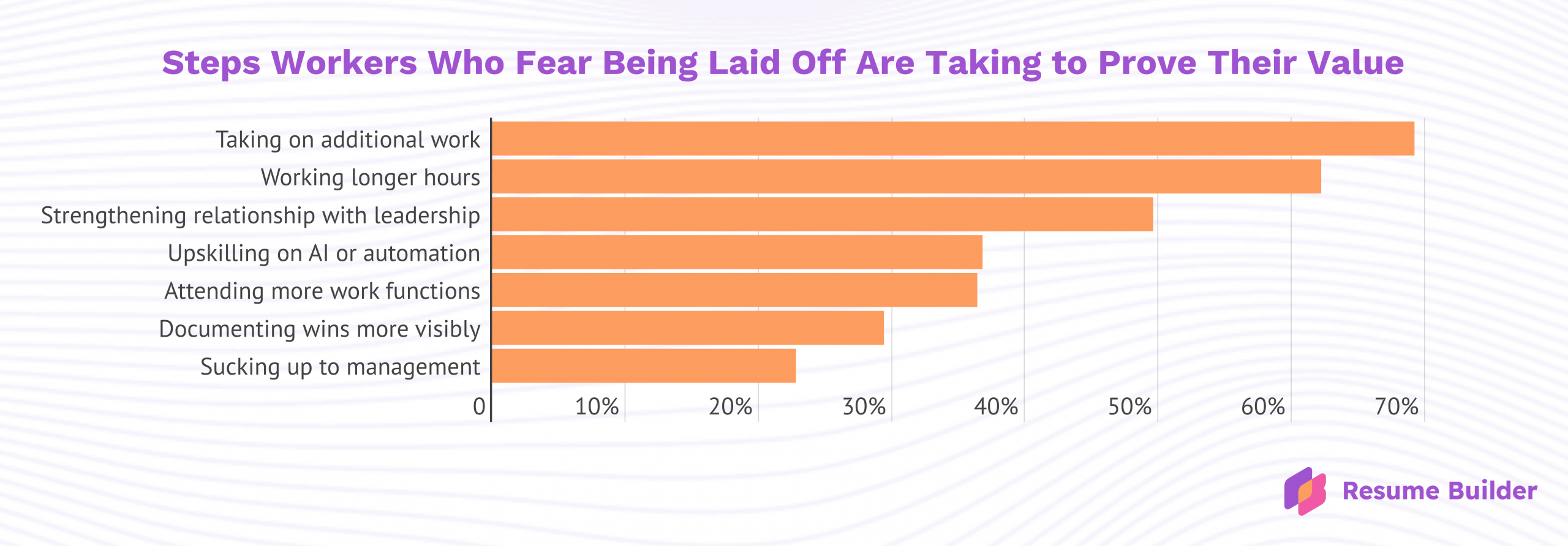In August, ResumeBuilder.com surveyed 2,221 full-time U.S. workers and found that nearly half are “job hugging” — staying in their current roles primarily because they feel switching jobs right now is too risky. Concerns about a weak job market, potential layoffs, and the growing impact of AI are keeping many employees in place, even if they’re unhappy where they are.
Key findings:
- 45% of workers are “job hugging,” staying in their current roles because switching feels too risky
- 95% of job huggers are staying due to concerns about the job market
- 77% of job huggers worry AI will make it harder to get a job in the future
- 84% of job huggers would look for better pay if the job market improved
- Half don’t expect to feel comfortable changing jobs for at least a year
45% of Workers Are Job Hugging
Nearly half of full-time U.S. workers (45%) are job hugging or staying in their current roles because switching jobs right now feels too risky. Among these job huggers, 95% cite concerns about the job market as the main reason for staying put. Nearly half (48%) describe the job market as not very good, and 19% believe it’s terrible. About 34% believe it’s just okay, and less than 1% think it’s good.
A fear of AI is also influencing workers’ decisions to stay put. Seventy-seven percent of job huggers are either very (30%) or somewhat concerned (47%) that AI will make it harder to get a job in the future.
If conditions were to improve, many would seek out better opportunities. Eighty-four percent say they’d look for better pay, 60% better benefits, and 57% growth opportunities. Additionally, 47% would seek out remote or flexible work, 38% better management, and 23% an improved office culture.
6 in 10 Job Huggers Are Concerned They’ll Lose Their Jobs
Concerns about job security are driving many job huggers to work harder to protect their positions. Fifty-nine percent are very (17%) or somewhat (42%) concerned about being laid off, and among those worried workers, 84% are putting in extra effort to safeguard their roles.
“The combination of a soft job market, economic uncertainty, and the impact of tariffs has slowed hiring, leaving many workers reluctant to make a move,” says Resume Builder’s Chief Career Advisor Stacie Haller. “Added to this is the growing fear that AI could displace jobs. In this environment, the need for stability outweighs the desire for higher pay, better benefits, or long-term growth. For many, it has become less about pursuing opportunities and more about protecting the job they have.”

Job huggers are working longer hours and sucking up to management to protect their jobs
To protect their jobs, workers are taking on more work (69%) and working longer hours (62%). Half are building stronger relationships with leadership, while 37% are upskilling on AI or automation, and 36% are attending more work functions. Nearly three in ten (29%) are making their wins more visible, and 23% admit they’re “sucking up” to management to stay in good standing.
“The fear of losing a job, and the uncertainty of how long it might take to find another, is driving many workers to overextend themselves by taking on extra responsibilities, working longer hours, and doing whatever it takes to preserve their standing,” says Haller. “While this may feel necessary in the short term, as workers delay changing roles until the market stabilizes, layoffs ease, and conditions feel more candidate-friendly, it often leads to burnout, disengagement, and declining productivity.”

Half of Job Huggers Won’t Feel Comfortable Changing Jobs Anytime Soon
Many job huggers don’t expect to feel comfortable changing jobs anytime soon. If employees were to join a new company in the next year, 88% say they’d worry about facing last in, first out risk during potential cuts. Only 6% believe they’ll be comfortable changing jobs within the next three months, and 14% in three to six months. Another 29% anticipate feeling comfortable in six to 12 months, while 30% say it will take one to two years. About 21% don’t think they’ll be ready for over two years.
However, despite widespread caution, over half (56%) are still browsing job listings occasionally, 23% are sending out a few applications, and 11% are actively applying and interviewing. Additionally, about 2% are already in advanced interviews or negotiations.
Methodology
This survey was commissioned by ResumeBuilder.com and conducted via the online survey platform Pollfish in August 2025. The survey included responses from 2,221 workers employed full-time in the U.S.
Learn more about Pollfish’s survey methodology or contact [email protected] for more information.
Media inquiries can be directed to [email protected].
